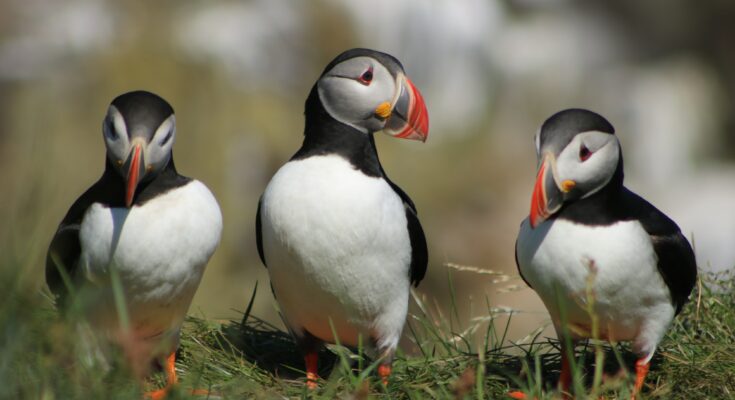German media outlet Deutsche Welle has come under heavy criticism after airing a video segment featuring one of its presenters indulging in puffin meat at a restaurant in Reykjavík. The incident has ignited a firestorm of outrage and has led to the removal of the videos from the channel’s social media platforms.
The controversial footage was part of an episode of the culture and lifestyle show Euromaxx, where the presenter sampled puffin delicacies at the renowned Hereford Steak House located on the bustling Laugavegur street in Reykjavík. The videos quickly gained traction on Instagram and YouTube, drawing the ire of conservationists and nature enthusiasts alike.
Critics have lambasted Deutsche Welle for its apparent lack of sensitivity to the conservation status of puffins, which are classified as endangered by the Icelandic Institute of Natural Sciences due to threats posed by climate change and habitat loss. The presenter’s tasting of the bird’s meat was deemed inconsiderate and against the values of responsible journalism.
Jochen Rosenkranz, the manager of Euromaxx, expressed regret over the incident in an interview with a news agency, acknowledging that the video failed to meet the channel’s editorial standards. He admitted that the coverage lacked a crucial component of responsible reporting, namely addressing the pressing issue of the puffin population’s decline and the conservation efforts in place.
“The video did not meet our media standards. It appeared on social media out of context and showed the host tasting puffs and describing the taste,” Rosenkranz stated. “There was a lack of critical reporting with information on the status of the puffin population and a cultural review. That’s why it was decided to delete the video.”
This controversy isn’t the first time culinary explorations in Iceland have sparked outrage. In 2015, British chef Tom Kerridge faced backlash for openly discussing his consumption of puffin, blackbird, whale, and horse meat. Similarly, British celebrity chef Gordon Ramsay drew widespread attention in 2007 when he consumed a raw snapper heart in the West Indies.
The incident has underscored the importance of responsible and ethically conscious reporting, especially when it comes to covering topics that involve endangered species. As environmental concerns continue to gain prominence globally, media outlets are being urged to exercise caution and empathy in their coverage of sensitive issues to avoid contributing to the degradation of endangered species and their habitats.



